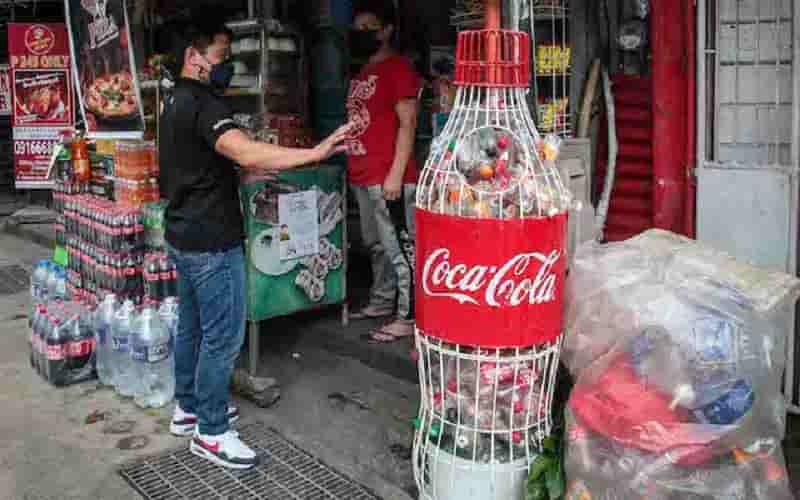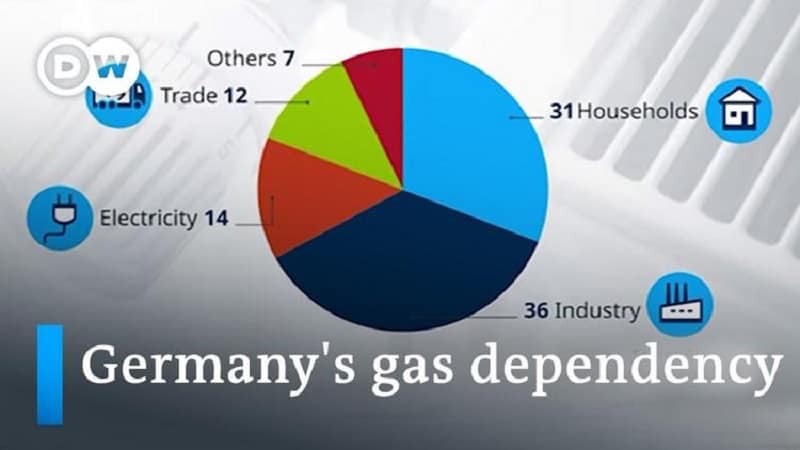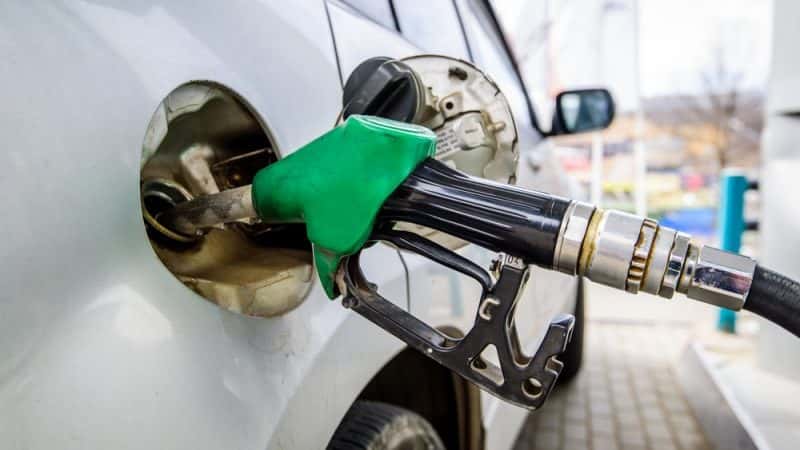Russian-oil – Biofuel-production – Recycling 04-05-2022 - Arhive
Russian-oil – Biofuel-production – Recycling
-A novel plastic-eating enzyme may solve our plastic woes once and for all
Gobbling up environment-throttling plastics in just a matter of hours.
Plastic pollution is everywhere. It’s showing up as microplastics that contaminate nearly everything and even in the stomachs of dead whales. This is because a lot of plastic is simply not biodegradable and has a very long lifespan.
Researchers around the world have been coming up with ingenious solutions such as reusing plastic into building blocks and even turning it into useful oils. But still, the problem persists on a large scale.
An enzyme variant that gobbles up hard-to-degrade plastics
Now, engineers and scientists at The University of Texas at Austin have come up with an innovative solution that may just resolve our plastic woes once and for all, according to a statement released by the institution on Wednesday. The solution takes the shape of an enzyme variant that gobbles up environment-throttling plastics that typically take centuries to degrade in just a matter of hours to days.
“The possibilities are endless across industries to leverage this leading-edge recycling process,” said Hal Alper, professor in the McKetta Department of Chemical Engineering at UT Austin. Russian-oil – Biofuel-production – Recycling
-CCBPI gives incentives to recyclers of clear PET bottles
Coca-Cola Beverages Philippines Inc. (CCBPI), the bottling arm of Coca-Cola in the country, is accelerating its plastic bottle collection program “Tapon to Ipon: Basta Klaro, Panalo” to benefit more communities nationwide.
Through “Tapon to Ipon,” clear beverage plastic bottles made from polyethylene terephthalate (PET) are collected to be recycled through PETValue Philippines, the country’s first bottle-to-bottle recycling facility. Russian-oil – Biofuel-production – Recycling
In neighborhood stores’ collection hubs first launched in Batangas City and the City of Manila, used PET plastic bottles are being collected and exchanged by community members for incentives (ipon). All “Tapon to Ipon” collection hubs accept all types of clear post-consumer PET plastic beverage bottles, regardless of brand. Underscoring that clear plastic bottles chart higher in recyclability compared to colored ones.
OPPO highlights use of sustainable, eco-friendly concepts in product lifecycle
IBPAP partners with ‘My Dream in a Shoebox’ to build educational hubs
“Through ‘Tapon to Ipon,’ we want to raise awareness about recycling and we want to do our part in ensuring that plastic packaging materials that are 100% recyclable are collected and used again,” said Gareth McGeown, CEO and president of CCBPI. “At the same time, we’re starting a movement within local communities called World Without Waste.”
World Without Waste
World Without Waste is Coca-Cola’s global goal to collect and recycle 100% of the bottles and cans it sells by 2030, a campaign now finding a pillar in “Tapon to Ipon” and its ability to enjoin every stakeholder within and beyond the Coca-Cola ecosystem. Russian-oil – Biofuel-production – Recycling
“Tapon to Ipon” leverages Coca-Cola’s extensive network to collect post-consumer plastic bottles: trade outlets such as neighborhood stores and wholesalers are being tapped to stand as collection hubs. These outlets are also used as collection hubs.


-Germany reduces dependence on Russian Oil from 35% to 12%, aims to End Imports
Germany has reduced its dependence on Russian crude oil from 35 to 12 percent and will take steps to replace the remaining deliveries to the Russian-operated Schwedt refinery within the next days, said the economy and climate minister.
As Gazprom stopped supplies of natural gas to Poland and Bulgaria because of their “failure” to pay in roubles, both EU and German politicians said that Vladimir Putin’s warning shot should not make governments nervous, as contingency plans were put in place. [UPDATE adds spokesperson statement on Germany finding solution for Schwedt] Russian-oil – Biofuel-production – Recycling
Germany will create the basis to become independent from imported Russian oil within the next days, economy and climate minister Robert Habeck said after a visit to Poland on 26 April. Germany has reduced its dependence on Russian oil imports from 35 to 12 percent since the beginning of Russia’s war against Ukraine, the minister said. PET-bottle-chip – Chemical-Recycling
Habeck detailed how all major German refineries had put plans into action that would wean them off Russian crude oil deliveries, with the exception of the Rosneft-operated PCK refinery in eastern German Schwedt. The Russian-owned Rosneft refinery, which receives its crude through a pipeline connection with Russia, “obviously has no interest in refining any other but Russian oil”, Habeck said. Alternative crude oil deliveries to Schwedt could come from the port of Rostock, and the Polish government had agreed to help with supplies – but only if this didn’t mean that they would help to keep Rosneft alive, Habeck explained.

-Italy’s Sitip shows embossed sustainable designs at Performance Days
At Performance Days, the leading trade fair on the latest trends in the development of fabrics for the functional textile industry, Sitip presented its latest innovations with an absolute focus on the embossing technique, a particular system of mechanical processes that now can also be used on the recycled items from the Native Sustainable Textiles line.
The collection of embossed designs combines performance, style and sustainability: thanks to special mechanical processes that combine heat and pressure, the fabric is embossed with geometric and design motifs for a more structured and palpable texture perfect for fashion and athleisure. The Native line is a technology that is applied to fabrics produced with recycled yarns and chemicals with low environmental impact, implementing the Global Recycle Standard (GRS), result of the journey towards sustainability implemented by the company, the company said in a press release. Russian-oil – Biofuel-production – Recycling
Performance Days, this year had its Performance Forum titled “The Journey to Carbon Neutrality – CO2 Reducing Technologies and Measuring Tools”. Protagonists were therefore all those materials that contain carbon in reduced form and the strategies/technologies that companies implement to ensure the reduction of CO2 emissions during production and how these reductions are actually measured (through energy saving, careful use of resources, use of more sustainable materials, local production and other technological and production measures).
Sitip’s fabrics selected by the forum were Native-Cosmopolitan Oslo, Native-Cosmopolitan Belfast and Native-Cosmopolitan Paris GZ Design Carreaux/Seersucker Gale. Native-Cosmopolitan Oslo is a fine gauge circular fabric made with post-consumer recycled yarns, 4-way stretch, gives UV protection (UPF 50+), skin comfort, no-see-through effect and perfect fit. Native-Cosmopolitan Belfast is a fine gauge 4-way stretch and double-knit fabric made with post-consumer recycled yarns, no-see-through effect and soft hand. Native-Cosmopolitan Paris GZ Design Carreaux/Seersucker Gale is a back brushed fabric in fine gauge made with post-consumer recycled yarns and chemicals with a low environmental impact, 4-way stretch, no-see- through, comfortable on the skin and easy care.

-German government mulls limiting biofuel production
Germany’s environment and agriculture ministries are reportedly working on restrictions for biofuel production so more grain can be used as human food as agriculture markets remain strained due to the war in Ukraine.
Together with Agriculture Minister Cem Özdemir, Environment Minister Steffi Lemke is currently looking to reduce the production of biofuels made from grain or oilseeds, Lemke told the Augsburger Allgemeine newspaper on Friday (29 April).
Agricultural raw materials such as rapeseed, grain, and beet have often been used to produce additives mixed with climate-damaging fossil fuels to improve their CO2 balance. Russian-oil – Biofuel-production – Recycling
“Agricultural land is limited worldwide, and we urgently need it for food, as the war in Ukraine dramatically demonstrates,” Lemke also said. From her point of view, agricultural land should be used for food production instead of for the tank, she explained.
The Green minister also pointed out that Germany had already decided to no longer recognise diesel with added palm oil as environmentally friendly biofuel. Now she also wants to reduce further the use of agrofuels in food and animal feed.
Lemke’s party colleague, Özdemir, recently expressed similar views on several occasions.
Proposal needs cabinet approval
When considering whether to use agricultural raw materials for food, animal feed or bioenergy, the “food first” principle prevails, Özdemir said following a meeting with federal agriculture ministers at the start of April.
The Green ministers are also supported by Development Minister Svenja Schulze of the Social Democratic Party (SPD). In Germany, 5% of arable land is used for biofuel production, she told the newspaper Handelsblatt.
“If we succeed in reclaiming this land step by step for food production, that would be a win for food security,” Schulze said. Russian-oil – Biofuel-production – Recycling
It is not yet clear to what extent Transport Minister Volker Wissing of the liberal FDP would support Lemke’s initiative. A permanent exchange between the ministries is ongoing, a transport ministry spokesperson told EURACTIV.

Russian-oil – Biofuel-production – Recycling
